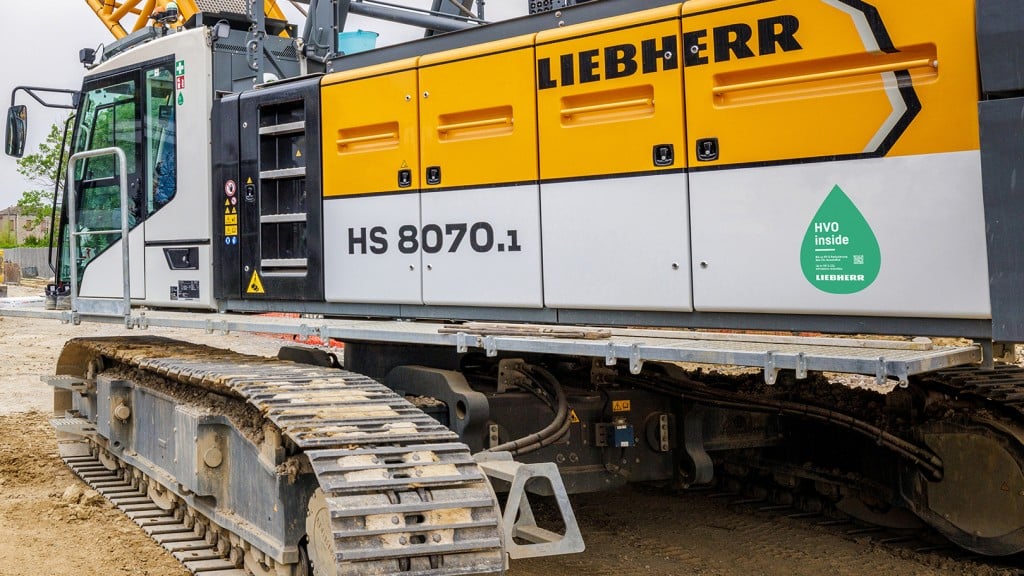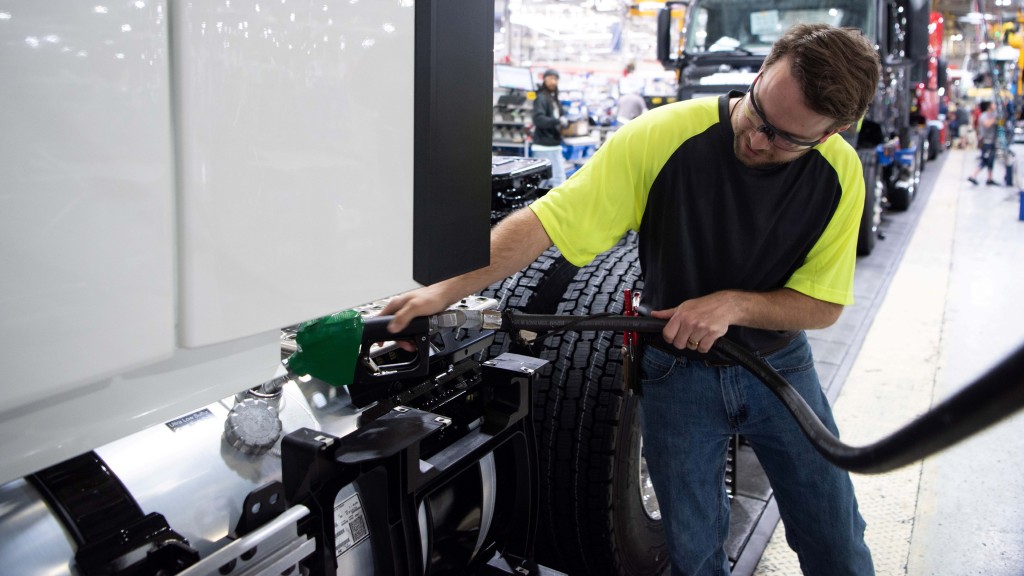Liebherr-Werk Nenzing facility converts production to HVO fuel
HVO produces up to 90 percent lower GHG emissions during combustion compared to conventional diesel and other fossil fuels

In August 2024, the Liebherr factory in Nenzing, Austria, switched to HVO fuel for the production of machines in its facility. Hydrotreated Vegetable Oil, or HVO, is a synthetically produced fuel that is mainly obtained from vegetable and animal oil, including fat waste from the food industry. These are converted into hydrocarbons with the addition of hydrogen. The big advantage in using HVO instead of fossil diesel is that it is largely carbon neutral. Liebherr's move is a part of the company's commitment to making an important contribution to the reduction of global greenhouse gas (GHG) emissions. The HVO fuel is now also being used in the factory's supply chain.
Renewable, low-emission HVO that is free of palm oil
The HVO fuel from Neste used by Liebherr in Nenzing is one of the highest quality fuels on the market and is free from palm oil. Compared to conventional diesel and other fossil fuels, HVO produces up to 90 percent less GHG emissions during combustion.
The use of HVO in the machines at the Liebherr factory in Nenzing can save 300,000 litres of diesel per year and reduce carbon dioxide emissions by 810 tonnes. This corresponds to a 20 percent reduction in direct GHG emissions at the site. As HVO can be mixed with fossil diesel in any ratio and used with conventional combustion engines, most Liebherr machines in the global fleet can be operated immediately and effectively with HVO. The higher the proportion of HVO in the fuel mixture, the higher are the carbon dioxide savings.
HVO in logistics
Since the beginning of August 2024, a well-known Vorarlberg transport company has also been carrying out all transport operations for Liebherr-Werk Nenzing using HVO-powered vehicles. Thanks to this collaboration, the site is significantly reducing its carbon footprint and improving environmental standards in the supply chain. This conversion can save 23 percent of transport emissions and 3,500 tonnes of GHG emissions.
Company info
1015 Sutton Drive
Burlington, ON
CA, L7L 5Z8
Website:
liebherr.com/en/can/about-liebherr/liebherr-worldwide/canada/liebherr-in-canada.html



